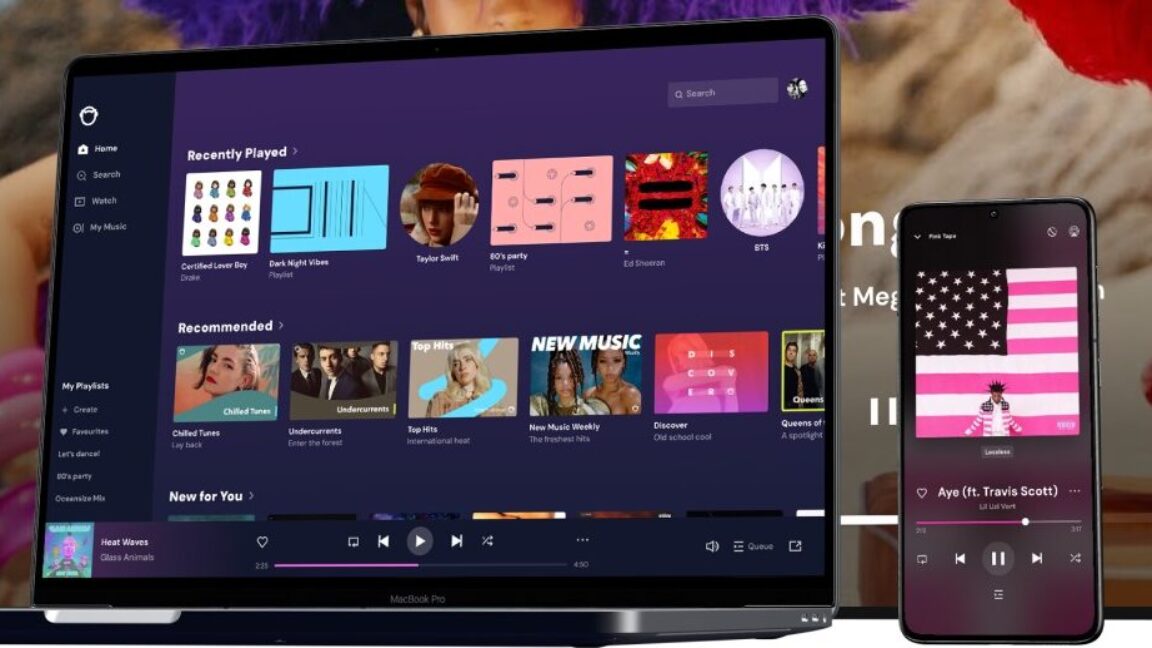
Napster to become a music-marketing metaverse firm after $207M acquisition
arstechnica.com
P2P Phoenix Napster to become a music-marketing metaverse firm after $207M acquisition Napster will promote music in "branded 3D virtual spaces," soon-to-be owner says. Scharon Harding Mar 25, 2025 4:00 pm | 32 Credit: Napster Credit: Napster Story textSizeSmallStandardLargeWidth *StandardWideLinksStandardOrange* Subscribers only Learn moreInfinite Reality, a media, ecommerce, and marketing company focused on 3D and AI-powered experiences, has entered an agreement to acquired Napster. That means that the brand originally launched in 1999 as a peer-to-peer (P2P) music file-sharing service is set to be reborn again. This time, new owners are reshaping the brand into one focused on marketing musicians in the metaverse.Infinite announced today a definitive agreement to buy Napster for $207 million. The Norwalk, Connecticut-based company plans to turn Napster into a social music platform that prioritizes active fan engagement over passive listening, allowing artists to connect with, own, and monetize the relationship with their fans." Jon Vlassopulos, who became Napster CEO in 2022, will continue with his role at the brand.Since 2016, Napster has been operating as a (legal) streaming service. It claims to have over 110 million high-fidelity tracks, with some supporting lossless audio. Napster subscribers can also listen offline and watch music videos. The service currently starts at $11 per month.Since 2022, Napster has been owned by Web3 and blockchain firms Hivemind and Algorand. Infinite also develops Web3 tech, and CEO John Acunto told CNBC that Algorands blockchain background was appealing, as was Napster's licenses for streaming millions of songs.To market musicians, Infinite has numerous ideas for helping Napster users interact more with the platform than they do with the current music streaming service. The company shared goals of using Napster to offer "branded 3D virtual spaces where fans can enjoy virtual concerts, social listening parties, and other immersive and community-based experiences" and more "gamification." Infinite also wants musicians to use Napster as a platform where fans can purchase tickets for performances, physical and virtual merchandise, and "exclusive digital content." The 6-year-old firm also plans to offer artists abilities to use "AI-powered customer service, sales, and community management agents" and "enhanced analytics dashboards to better understand fan behavior with Napster."I firmly believe that the artist-fan relationship is evolving, with fans craving hyper-personalized, intimate access to their favorite artists, while artists are searching for innovative ways to deepen connections with fans and access new streams of revenue," Acunto said in a statement.Napster has come a long way from its peak, when it reached 89 million users, per Infinite's announcement. In its earliest days, Napster was primarily used for sharing MP3 files that were often pirated. This didn't sit well with the music industry, and eventually Napster was slapped with big lawsuits from Metallica and the Recording Industry Association of America. (Seventeen years later, Metallica's full catalog would be available on Napster.) By 2001, Napster was shut down, and in 2002, the company filed for bankruptcy.After that, the Napster brand changed hands multiple times, including with Roxio, which made Napster an iTunes rival in 2003. The early 2000s saw Napster try various business ventures, including a Flash-based site that let you stream for free but without playlists and a subscription model.Best Buy owned Napster for a bit in 2008 but eventually sold it to Rhapsody, which relaunched the Napster brand as a streaming service in 2016. UK-based MelodyVR paid $70 million for the brand founded by Sean Parker and Shawn Fanning in 2020 before selling it in 2022 to the blockchain firms.Now, Napster is set to begin a new chapter. Infinite didn't disclose any plans to change the streaming service as it functions now. But Infinite's focus will be on creating new ways to monetize the service with emerging technologies. Other companies have failed to work out how to successfully put on virtual music events that people actually want to watch. But if Infinite fails, it's not hard to imagine the Napster brand emerging from the ashes yet again. As Infinite chief business officer Amish Shah put it, "The endurance of the Napster brand stands as a testament to its resilience."Scharon HardingSenior Technology ReporterScharon HardingSenior Technology Reporter Scharon is a Senior Technology Reporter at Ars Technica writing news, reviews, and analysis on consumer gadgets and services. She's been reporting on technology for over 10 years, with bylines at Toms Hardware, Channelnomics, and CRN UK. 32 Comments
0 Comments
·0 Shares
·93 Views


